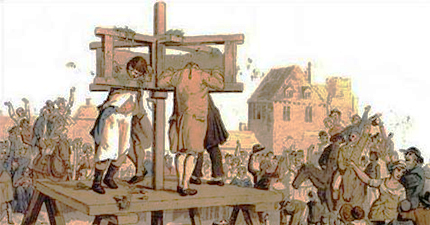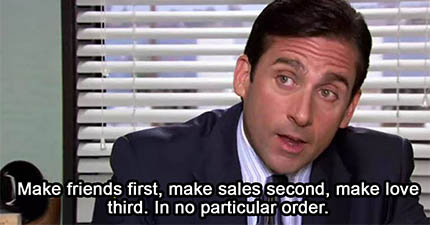There’s a genre of fiction that is really popular right now. In this genre, the main character usually accesses some kind of power source whether supernatural, natural, or artificial in origin. Then, the MC pretty much just shows everyone up. They vanquish all of their enemies. They get rid of anyone who tries to bother them. They win all of the awards and are forced into battles or tests that they usually win with ease.
Sometimes, the main character’s power source is daoist cultivation. Other times, it’s the wearing of a special mecha suit. There’s also characters who are born with an adult consciousness because they never forgot who they were in a past life and characters who are given powers by aliens. Sometimes, genetics play a factor in making the character unstoppable but other times it’s because they won immortality and their thousands of years of experience just makes them better than everyone else.
As you can probably tell from the childish mentality, most of these stories are written by middle schoolers for other middle schoolers. This is an extremely popular teen genre and you can usually find it where you find webnovels.
Middle schoolers are a funny bunch. I’ve worked with some but mostly with people who are younger. The difference is usually pretty obvious. Middle schoolers are a lot less likely to want to interact with the teacher and are much more likely to discuss things amongst themselves. They just want more privacy. They’re learning social context and they can be a lot more competitive than kids who haven’t suffered through puberty yet.
I find these powertripping fantasies with a middle school mentality really precious and really hilarious. Most of them have an element of satire and self awareness. The anime Saiki is probably the show that pushes the satire inherent within this genre the furthest. Sometimes, the stories get heartfelt too. However, most of the time, the main character in stories of this genre isn’t really that interested in doing something like saving the world or learning valuable lessons. They’re uninterested in moral goodness at all. Most of the time, these are antisocial stories. The main character is only interested in living a somewhat okay life and in being left alone. OP just wants to not be disturbed.
Middle schoolers are a pretty powerless bunch. They don’t get to decide what foods they eat. They don’t have any money and they can’t work a job. They have to go to school everyday and they can’t decide what they study. A lot of middle schoolers don’t really get to decide who they spend time with and are told to live life in a certain way by all kinds of people. I think it’s great that they have developed their own genre of powertripping fiction where the main character’s end goal is not to construct any righteousness, create any social order, or teach any didactic lessons but simply to gain a sense of their own privacy.
Middle schoolers, as it turns out, don’t want to take over the world. They mostly just want to be left alone.
(There’s also another genre of fiction that is really similar to the OP powertripping one. In this genre, the main character gets a powerful man to fall in love with them. The gender of the main character is usually fluid because this genre shows up in het romance and boy’s love. Usually, the MC in this kind of story also isn’t that interested in morality even if the man they get with is somewhat evil. This kind of character is mostly interested in receiving material benefits and also in winning. Jealousy is a bit part of the plotlines and we get to see the MC win against their competition for the man’s love.
Also a powertripping fantasy—just a little different in the set up.)
These powertripping fantasies are extremely popular. Many of these stories have millions of readers. I think the reason why they are so popular is because they present a totally simplified vision of the world and this can be really comforting. That’s another way you can tell they are written by middle schoolers for other middle schoolers. The worlds are usually very stark and simple because middle schoolers are only just starting to explore the world. They’re already going through puberty so they don’t really want to deal with too much information.
So, powertripping fantasies usually present the world as a series of tests. They present a life as something that is won by getting the attention of a rich man or by collecting a powerful gem. They are naive fictions. The character usually only needs to develop a specific skill level to its fullest ability. They become “the best” but only in certain ways of meaning the term. The way these powertripping fantasies imagine success can be banal and quite narrow.
A lot of these stories are written by Chinese kids coming of age in super competitive environments. That may be another reason why they don’t try to tackle issues of morality or goodness. Making up your own mind about principles narratively carries the risk of the story becoming too political. If the story accidentally becomes too political then it will be taken down.
The American genre I feel shares the most similarity with these powertripping fantasies is a certain type of self help book. I understand that self help isn’t considered a fictional genre but there can be an element of reality distortion in self help. A lot of these books construct their own frames.
You might be wondering why I’m comparing self help books to OP power creeps. Isn’t the genre of American superheroes much more similar to the middle school mentality powertripping fantasy genre? I’m not so sure about that. Superheroes were a response to the atomic bomb in a sense. They have a lot more similarity to stories like Akira or Neon Genesis Evangelion. There’s usually an element of deconstructing power in superhero narratives and superheroes are not usually so antisocial. They tend to deal with a lot of questions around what is right and what is wrong.
OP power fantasies and self help is a little different. These genres are not commonly self aware about power or power’s construction. They’re not usually concerned about power at all but about solving problems.
The world that certain self help books present is pretty simplified. History is consolidated through a few familiar figures—Ben Franklin, Napoleon, and Tesla are favorites. A lot of the books seem to be about how to acquire a lot of real estate for some reason. Others are simply about how to become more productive and efficient. Elon Musk is usually presented as an inspirational figure. Problem solving may be presented as life hacks. Human issues are summarized through a single study on baboon behavior. The idea that you can change your whole life by changing one or two habits is common because it is assumed that all of your problems are either self created or completely imaginary. Solutions are usually a bit philosophical but not all the way spiritual. There’s a mystical tone but that mysticism is usually only relevant when it can be applied to realistic problems. Spiritual practices or outlooks are never presented in whole but dissected into bite sized parts.
Sometimes, the spiritualisms of these self help books is exactly the same as middle school power trips. They’re both kind of into the concept of daoist cultivation. OP cultivates his qi for a thousand years and becomes a mecha suited soldier who beats everyone. Jordan Peterson is also into daoism and even gave a talk about yin and yang.
Certain self help books share a common interest with the OP power trips. That interest is simple—how to win at life.
Because you can win at life. It’s really that simple.
But there’s one difference between Jordan Peterson and OP power trips. OP power trips are written for middle schoolers by other middle schoolers. If they are written by adults, then those adults understand themselves as inhabiting a middle school mentality. The writing and enjoyment of these stories are at least somewhat embarrassing. Engaging in power tripping fantasies is not seen to be a productive use of time. You’re at least a little self aware that you’re just indulging your inner middle schooler. Fans of this genre of fiction often refer to themselves jokingly as diaosi (which is literally translated to “penis hair” but is actually not seen as derogatory) as a way to commiserate for feeling like a loser.
For all of the similarities that I see between Jordan Peterson’s work and this Chinese middle schooler fantasy genre, I don’t think Jordan Peterson is as self aware. I think that he falls prey to the trap of believing his own delusions. Maybe that is a form of optimism or maybe it is much more cynical. It is one thing to enjoy your inner petty and antisocial middle schooler every now and then. It is another to think that this inner middle schooler can solve your life’s problems for you.
1 of 188
>>>


